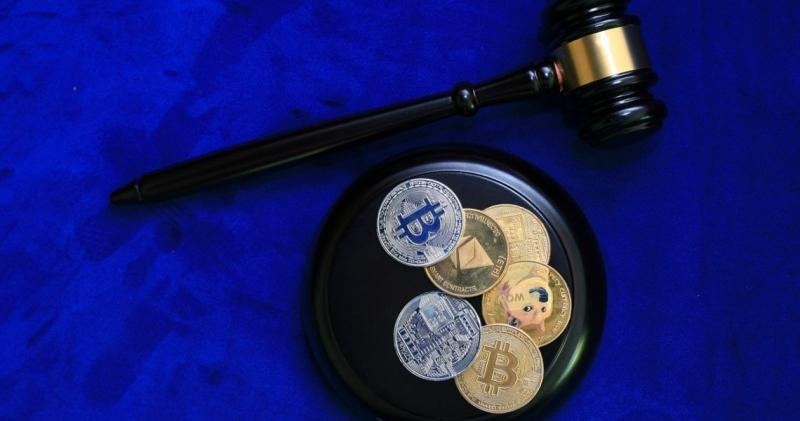Contents

Coinbase, one of the largest cryptocurrency exchanges in the United States, is facing allegations from the Securities and Exchange Commission (SEC) that it was aware of violations of the security token law.
In a recent letter filed by the SEC, the regulator responded to Coinbase’s allegations, saying it does not have jurisdiction to prosecute the exchange.
SEC responds: Coinbase will be prosecuted for violating security token laws
According to the SEC, Coinbase was aware that federal securities laws might apply to its operations.
The letter points out that Coinbase openly informed its shareholders of the possibility that assets traded on its platform were classified as securities.
The SEC argues that because Coinbase is a publicly traded company and assisted by sophisticated legal counsel, it should have been aware of the implications and legal requirements.
The SEC’s response accuses Coinbase of failing to comply with established legal precedent, referring in particular to the landmark Howey case, which defined the test for determining whether an investment contract qualifies as a security.
The SEC suggests that Coinbase is attempting to create its own test for defining what constitutes an investment contract, despite more than 75 years of established law.
The letter is a direct response to a filing made by Coinbase on 28 June, in which the exchange notified the court of its intention to file a motion for judgment.
Such a motion is usually used when a party believes there is no genuine dispute as to the material facts of a case.
The Security and Exchange Commission’s allegations are very significant in the crypto landscape
The SEC allegations against Coinbase are significant, as they could have far-reaching implications for cryptocurrency regulation and the operations of major cryptocurrency exchanges.
If the SEC succeeds in proving that Coinbase violated securities laws, it could set a precedent for greater scrutiny and regulation of the entire cryptocurrency industry.
Coinbase has been a major player in the cryptocurrency market, providing users with a platform to buy, sell and store various digital assets.
The legal battle between Coinbase and the SEC will be closely watched by industry players, regulators, and investors.
The outcome of this lawsuit could have significant implications for the future of cryptocurrencies and their integration into the mainstream financial system.
In the meantime, it is critical for cryptocurrency companies to carefully navigate the complex regulatory landscape and ensure compliance with applicable securities laws to maintain the confidence of investors and regulators.
Coinbase: previous letter to SEC over security token
In its previous letter, Coinbase raised an interesting point about SEC Chairman Gary Gensler’s appearance before Congress.
Coinbase claimed that Gensler stated:
“There is no market regulator around these crypto exchanges”
and pointed out that only Congress has the authority to confer regulation on exchanges.
Coinbase’s argument suggests that while the SEC chairman himself acknowledged the lack of regulatory authority over cryptocurrency exchanges, this raises questions about the SEC’s jurisdiction in the case against Coinbase.
Coinbase also pointed out the timing of the SEC’s allegations, noting that they were filed two years after the exchange was priced.
According to Coinbase, the activities that led to the allegations were fully described to the regulator and the general public during the company’s public listing.
This raises concerns about the delay in the SEC’s response and whether it had sufficient grounds to bring charges against Coinbase, given the information that was publicly available at the time.
Attorney Roland Chase, who specializes in corporate and securities law, spoke on the issue, explaining that the SEC’s role focuses primarily on reviewing the disclosure documents of publicly traded companies.
The SEC’s authority is to provide comments and ask questions to improve the information provided by the company to potential investors.
Chase pointed out that the federal securities laws governing the “going public” process are based on disclosure, and the SEC does not have the power to deny a company’s public listing based only on its opinion on the profitability of the investment.
Conclusions
The SEC decision to charge Coinbase for allegedly offering unregistered securities since 2019 is a significant development in the case.
This indictment suggests that the SEC believes that some assets traded on Coinbase’s platform should have been registered as securities and that their failure to register violated securities laws.
A pre-motion conference on the case is scheduled for 13 July, where both sides will have an opportunity to present their arguments and discuss the issues involved.
This conference will likely shed light on the SEC’s jurisdiction claims and Coinbase’s defense strategy.
The legal battle between Coinbase and the SEC continues, but it remains a crucial case that could shape the future regulatory landscape of cryptocurrencies and cryptocurrency exchanges.
The outcome of this case will not only impact Coinbase, but will also have implications for other exchanges and how they comply with securities laws.
The cryptocurrency industry, investors, and regulators will be watching developments in this case closely to understand the potential regulatory implications for the broader cryptocurrency market.

